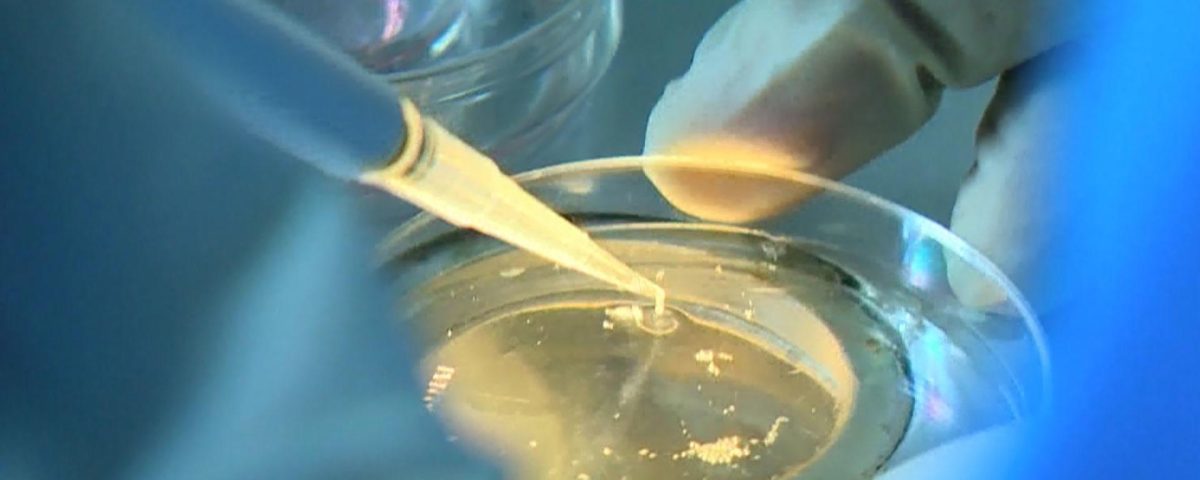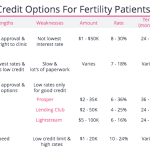
How Much Does IVF Really Cost? A Deep Dive into the Price of Building Your Family
March 30, 2025IVF and Southern Baptists: A Deep Dive into Faith, Fertility, and the Future
Hey there! If you’ve landed here, you’re probably curious about two big topics: in vitro fertilization (IVF) and the Southern Baptist Convention (SBC). Maybe you’re wondering why a religious group has opinions about a medical procedure, or perhaps you’re exploring how faith and science bump into each other in today’s world. Whatever brought you here, we’re going to unpack this in a way that’s easy to follow, packed with surprises, and full of stuff you won’t find anywhere else. Let’s dive in!
What’s the Deal with IVF and Southern Baptists?
So, what’s the connection between IVF and the Southern Baptists? At first glance, it might seem like these two don’t have much in common—one’s a high-tech fertility treatment, and the other’s a huge group of Protestant Christians. But in June 2024, the SBC made headlines by voting to oppose IVF during their annual meeting in Indianapolis. This wasn’t just a random decision; it’s tied to their deep beliefs about life, embryos, and what it means to be human.
The Southern Baptist Convention is the largest Protestant denomination in the U.S., with nearly 13 million members across 47,000 churches. They’re known for their strong stance against abortion, and now they’re extending that belief to IVF. Why? Because IVF often involves creating multiple embryos, and not all of them get used. Some are frozen, others are discarded, and for Southern Baptists, that’s a big problem—they see every embryo as a human life with a soul, deserving of protection.
But here’s where it gets interesting: not everyone in the SBC agrees, and the debate’s messier than it seems. Plus, there’s a whole world of personal stories, hidden struggles, and surprising facts that don’t always make it into the news. Let’s break it down step by step.
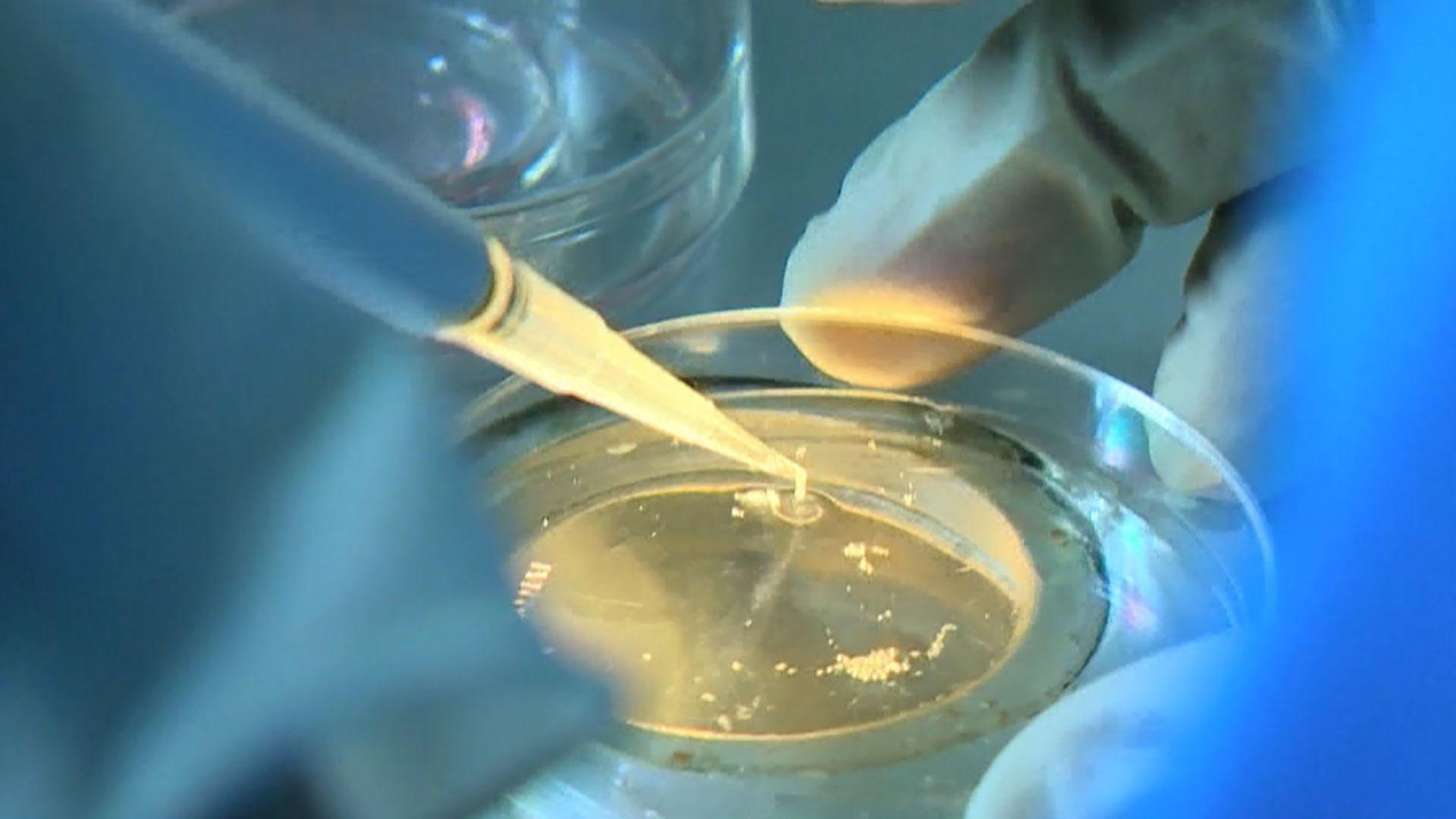
IVF 101: How Does It Work, Anyway?
Before we get into the Southern Baptist side of things, let’s make sure we’re all on the same page about IVF. If you’ve never looked into it, IVF might sound like something out of a sci-fi movie, but it’s actually pretty straightforward.
What Is IVF?
IVF stands for in vitro fertilization, which is Latin for “fertilization in glass.” It’s a process where doctors take eggs from a woman, mix them with sperm in a lab, and create embryos. Then, one or more of those embryos are placed in the woman’s uterus to (hopefully) grow into a baby.
Here’s a quick rundown of how it works:
- Stimulation: The woman takes hormones to produce lots of eggs (instead of just one per month).
- Egg Retrieval: Doctors use a tiny needle to collect those eggs.
- Fertilization: In a lab, the eggs meet the sperm—either naturally or with a little help from a scientist.
- Embryo Growth: The fertilized eggs (now embryos) grow for a few days.
- Transfer: One or two healthy embryos go into the uterus.
- Waiting Game: Fingers crossed for a pregnancy!
Why Do People Use IVF?
People turn to IVF for all kinds of reasons:
- Infertility: Maybe the woman’s fallopian tubes are blocked, or the man’s sperm count is low.
- Age: As women get older, natural conception gets tougher.
- Medical Issues: Conditions like endometriosis or PCOS can make pregnancy tricky.
- Same-Sex Couples or Single Parents: IVF helps folks build families in non-traditional ways.
The Catch: Extra Embryos
Here’s the part that trips up the Southern Baptists: IVF usually creates more embryos than needed. A typical cycle might produce 6-12 embryos, but only 1 or 2 get transferred. The rest? They’re either frozen for later, donated, used for research, or—here’s the sticking point—discarded. That’s where the ethical debate kicks in.
Fun fact: Did you know the first IVF baby, Louise Brown, was born in 1978? She’s a mom now herself—talk about full circle!
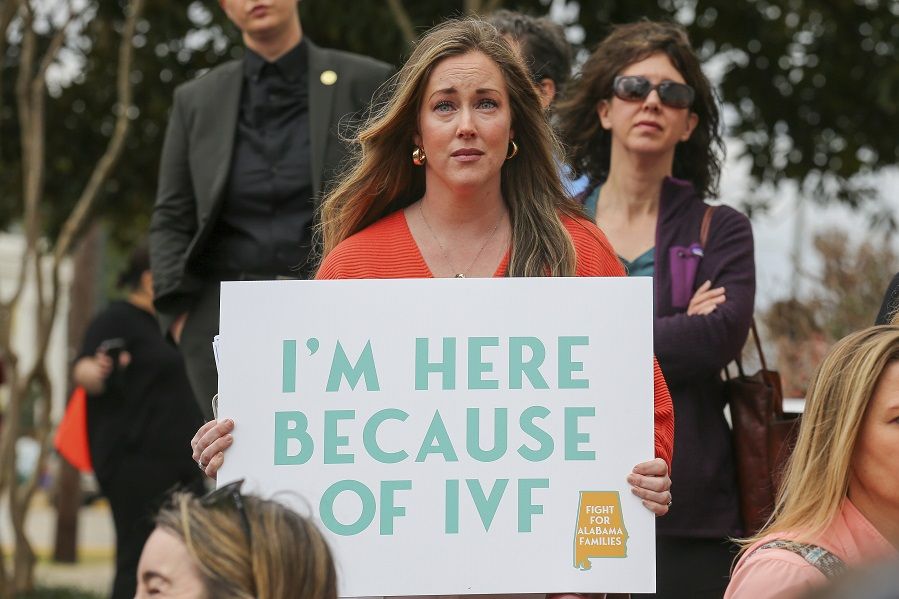
Southern Baptists: Who Are They, Really?
If you’re not super familiar with the Southern Baptist Convention, let’s get to know them. They’re not just a random church group—they’re a powerhouse in American Christianity, especially in the South.
A Quick History
The SBC started back in 1845 when Baptists in the South split from their northern counterparts over slavery (yep, they were on the pro-slavery side—history’s not always pretty). Today, they’re all about conservative values, the Bible as literal truth, and spreading their faith. With millions of members, their decisions ripple out into politics, culture, and even your neighbor’s Sunday potluck.
What Do They Believe?
Southern Baptists have some core beliefs that shape their IVF stance:
- Life Begins at Conception: They say a human soul starts the moment sperm meets egg.
- Sanctity of Life: Every life, born or unborn, is sacred and deserves protection.
- God’s Design: They believe reproduction should follow a “natural” path—man, woman, marriage, no lab involved.
Their official guide, the Baptist Faith and Message 2000, says kids are a “blessing and heritage from the Lord” from conception. That’s why abortion’s a no-go, and now IVF’s in the hot seat too.
Fun Tidbits About Southern Baptists
- Food Lovers: Ever been to a Southern Baptist potluck? Fried chicken, casseroles, and sweet tea are basically sacred.
- Music Fans: They’re big into hymns—think “Amazing Grace” on repeat.
- Community Vibes: Church isn’t just Sunday; it’s Wednesday night Bible study, youth group, and more.
But here’s a secret: not all Southern Baptists are on the same page about IVF. Some have used it themselves, and others quietly support it. It’s a tension that’s bubbling under the surface.
Why Southern Baptists Oppose IVF
Okay, let’s get to the heart of it: why did the SBC vote against IVF in 2024? It’s not just about embryos—it’s about theology, ethics, and a bigger worldview.
The Embryo Dilemma
The SBC’s resolution, called “On the Ethical Realities of Reproductive Technologies and the Dignity of the Human Embryo,” says IVF “most often participates in the destruction of embryonic human life.” They’re worried about those extra embryos that don’t make it to the uterus. To them, discarding an embryo is like ending a life—full stop.
Dr. Andrew Walker, a professor at Southern Baptist Theological Seminary and one of the resolution’s authors, put it this way: “All I’m doing is applying the full force of my principles on unborn human beings to frozen ones too.” For him, it’s simple logic: if life begins at conception, IVF’s standard practices clash with that belief.
Freezing Embryos: A Moral Gray Area
What about the embryos that get frozen? Millions of them are sitting in storage across the U.S.—some call it an “embryo orphanage.” Southern Baptists say this indefinite limbo disrespects human dignity. Should they be left there forever? Adopted out? It’s a puzzle with no easy answer.
The “Unnatural” Argument
Some Southern Baptists also argue IVF messes with God’s plan. They say conception should happen through marriage and sex, not a petri dish. It’s less about science being “evil” and more about keeping things “natural”—though defining “natural” gets tricky when you think about modern medicine like pacemakers or antibiotics.
The Vote: What Happened?
At the 2024 meeting, nearly 11,000 delegates (called “messengers”) voted overwhelmingly to oppose IVF. The resolution isn’t a law—it’s more like a strong suggestion to members and a signal to lawmakers. They want Southern Baptists to push for policies that “restrain actions inconsistent with the dignity of every human being, including frozen embryonic human beings.”
But here’s the twist: the vote wasn’t unanimous. Some messengers spoke up about their own IVF kids, begging for a softer stance. It showed the SBC isn’t a monolith—there’s real debate happening behind closed doors.
The Other Side: Southern Baptists Who Love IVF
Not every Southern Baptist is anti-IVF. In fact, plenty of them have used it to build their families, and their stories add a whole new layer to this conversation.
Personal Stories That Hit Home
Take Alicia Amos, a 32-year-old mom from Missouri. She grew up Southern Baptist and used IVF to have her 3-year-old daughter. When she heard about the resolution, she cried—not out of anger, but because it felt personal. “My church prayed for me through infertility,” she told NBC News. “They celebrated my baby. This doesn’t change my faith, but it hurts.”
Then there’s Zach Sahadak from Ohio. At the SBC meeting, he got emotional talking about his IVF son and his pregnant wife, carrying another IVF baby. “I love my 10 frozen embryos,” he said. “We’ll see them born into a Christian family.” He’s pro-life but sees IVF as a tool to create life, not destroy it.
The Numbers Don’t Lie
A Pew survey from April 2024 found that 63% of evangelicals (including Southern Baptists) think IVF access is a “good thing.” That’s a huge gap from the SBC’s official stance. It suggests the leaders might be out of touch with the pews—or at least that the issue’s more complicated than a single vote.
Can IVF Fit Their Faith?
Some Southern Baptists tweak IVF to match their beliefs. Here’s how:
- Limit Embryos: Only fertilize as many eggs as you’ll use (say, 2 instead of 12).
- Adopt Embryos: Take someone else’s frozen embryos and give them a chance at life.
- No Discarding: Commit to using or donating every embryo created.
Dr. Paula Amato, president of the American Society for Reproductive Medicine, says she’d work with patients to make IVF faith-friendly. “If they only want to fertilize a few eggs to avoid extras, I’d accommodate that,” she’s said. It’s a practical fix for a moral bind.
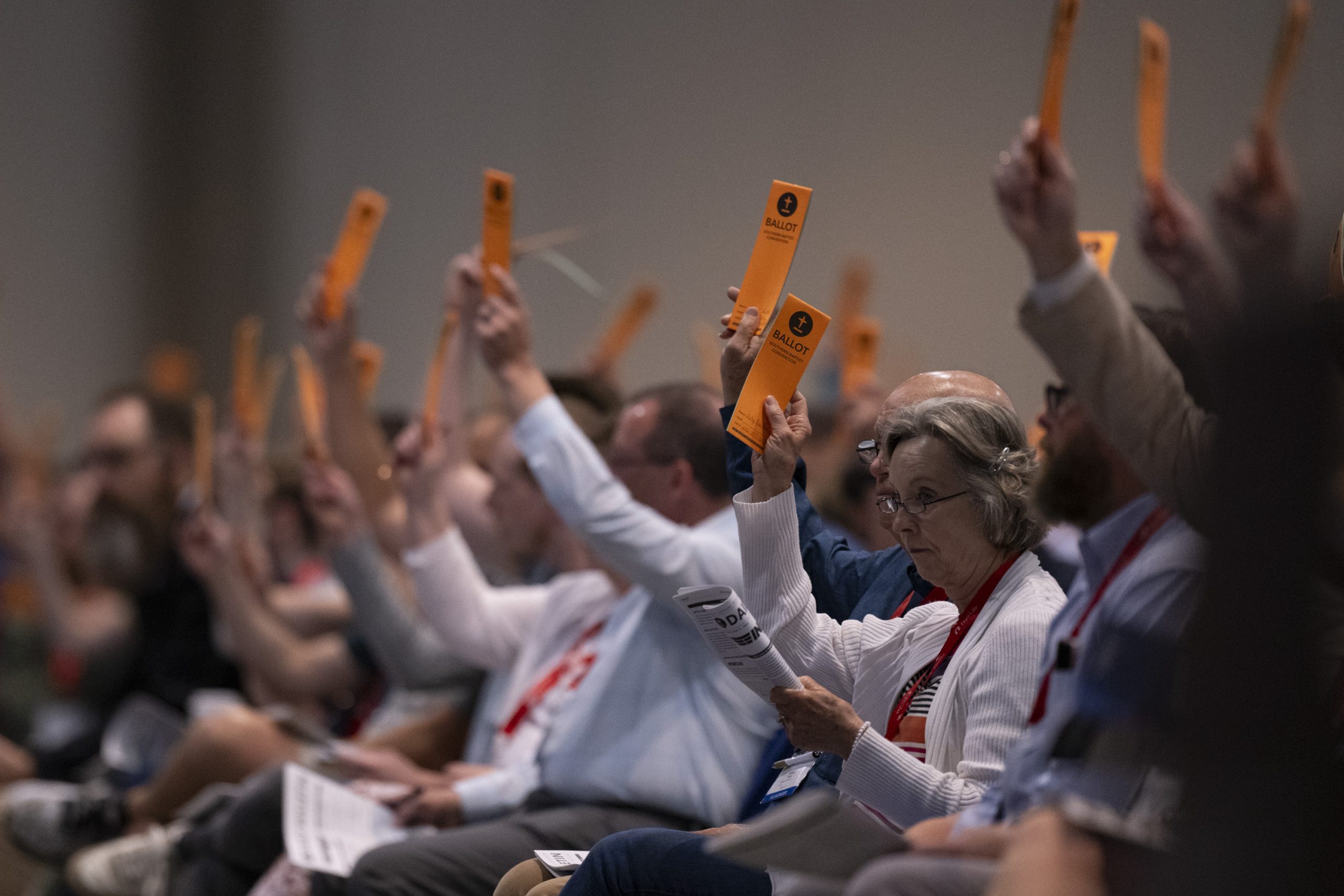
The Bigger Picture: IVF, Politics, and Southern Baptists
This isn’t just a church debate—it’s spilling into the real world, especially with the 2024 election heating up. The SBC’s stance could shake things up in ways you might not expect.
The Alabama Shockwave
In February 2024, the Alabama Supreme Court ruled that frozen embryos are “children” under state law. IVF clinics freaked out and paused services until lawmakers passed a fix to protect them. The SBC loved the ruling—it matched their view—but it also sparked a national IVF panic. Suddenly, everyone from Donald Trump to Senate Democrats was talking fertility treatments.
Politics Gets Messy
Republicans, who lean on Southern Baptist votes, are in a bind. Most Americans (86%, per a 2024 poll) support IVF, so the GOP’s been quick to say, “We’re pro-IVF!” Trump even promised to “strongly support” it. But the SBC’s resolution puts pressure on them to rethink that. Meanwhile, Democrats are pushing bills like the Right to IVF Act to lock in access—and dare Republicans to vote no.
What’s Next?
The SBC isn’t stopping here. Some insiders hint at future resolutions with “stronger language,” maybe even pushing for IVF restrictions. Brent Leatherwood, head of their Ethics and Religious Liberty Commission, told Politico, “It took 50 years to overturn Roe. This might take just as long.” They’re playing the long game, and IVF’s their next frontier.
Surprising Facts You Didn’t Know About IVF and Southern Baptists
Let’s lighten things up with some jaw-dropping tidbits that’ll make you the star of your next dinner party.
IVF’s Wild Stats
- Million Babies: Over 8 million babies have been born via IVF worldwide since 1978.
- Freezer Count: The U.S. has about 1 million frozen embryos in storage—enough to fill a small city!
- Success Rates: For women under 35, IVF has a 40-50% success rate per cycle. After 40, it drops to 10-20%.
Southern Baptist Secrets
- IVF Parents in the Pews: Some pastors guess 1 in 10 couples in their churches have used IVF—quietly, of course.
- Embryo Adoption Boom: Southern Baptists pioneered “snowflake babies”—adopting frozen embryos. Over 1,000 have been born this way!
- Political Power: The SBC’s lobbying arm has swayed laws on everything from abortion to religious freedom.
Weird IVF History
- Rabbit Roots: Early IVF experiments in the 1930s used rabbits—thankfully, humans took over later.
- Church Flip-Flop: Back in the ‘80s, some Baptists were cool with IVF. The shift came with the anti-abortion wave.
What Does Science Say About Embryos and IVF?
Let’s bring in some hard facts. What does the latest research tell us about embryos, IVF, and the ethical questions Southern Baptists raise?
Are Embryos “Alive”?
Biologically, an embryo is a cluster of cells with the potential to become a human. At 5 days old (when IVF transfers usually happen), it’s a blastocyst—about 100 cells, smaller than a pinhead. It can’t survive outside a uterus yet, but it’s got unique DNA.
A 2018 study by Reproductive Medicine Associates found that only 60-70% of fertilized eggs become viable blastocysts. The rest? They naturally fizzle out—similar to what happens in regular conception. So, the SBC’s “every embryo is a life” stance isn’t quite how nature works.
Freezing: Safe or Sketchy?
Freezing embryos is super common—over 90% survive thawing, per a 2023 study in Fertility and Sterility. But here’s the kicker: some sit in storage for decades. A 2022 report estimated 10-20% are abandoned when couples stop paying fees or lose contact. That’s where the “dignity” debate heats up.
New Tech on the Horizon
Science might solve some of these issues:
- Single Embryo Transfer (SET): Using just one embryo per cycle cuts down on extras. It’s already standard in places like Japan.
- Genetic Screening: Preimplantation genetic testing (PGT) spots healthy embryos, reducing waste. A 2024 trial showed a 15% boost in success rates.
- Artificial Wombs: Still experimental, but they could one day grow embryos without discarding any—wild, right?
Practical Tips for Southern Baptists Facing Infertility
If you’re a Southern Baptist wrestling with infertility, this section’s for you. The SBC’s stance might feel heavy, but there are options that fit your faith—and some that push the boundaries.
Option 1: Natural Routes
✔️ Track Ovulation: Use apps or kits to pinpoint fertile days—free and faith-friendly.
✔️ Diet & Exercise: Studies show a 5% weight loss can boost fertility in women with PCOS.
❌ Don’t Stress: Easier said than done, but stress hormones can mess with conception.
Option 2: Faith-Approved IVF
✔️ Limit Eggs: Tell your doctor to fertilize only 1-2 eggs per cycle. It’s less efficient but avoids extras.
✔️ Embryo Adoption: Adopt someone else’s frozen embryos—over 50 U.S. clinics offer this.
❌ Avoid Discarding: Commit to using or donating every embryo you create.
Option 3: Adoption
The SBC loves adoption—it’s in their resolution! Here’s a quick guide:
- Research: Look into private, foster, or embryo adoption.
- Budget: Costs range from $0 (foster) to $40,000 (private).
- Pray: Many Southern Baptists say faith led them to their kids.
Real talk: Amanda and Ryan Visser, a Baptist couple, skipped IVF and adopted three frozen embryos. “We couldn’t stomach discarding them,” Amanda said. Now they’ve got a house full of “snowflake” kids.
What’s Missing from the Conversation?
A lot of articles out there cover the basics—SBC votes no, embryos are sacred, politics gets messy. But they skip some juicy stuff that deserves a spotlight. Here’s what’s been overlooked—and why it matters.
The Emotional Toll
Infertility hits hard, and the SBC’s stance can feel like a punch to the gut. A 2023 study in Human Reproduction found 40% of infertile women experience depression—double the general rate. Add church pressure to that? Ouch. We need to talk more about supporting these families, not just debating their choices.
The Gender Gap
Who’s making these rules? Mostly men. Photos from the 2024 SBC meeting show a sea of male delegates. Women’s voices—like those who’ve been through IVF—are barely heard. Shouldn’t they get a bigger say in a debate about their bodies?
The Tech Fix
Why isn’t anyone pushing for IVF reform instead of bans? Single embryo transfer, better freezing laws, or funding for embryo adoption could bridge the gap. A 2024 paper in Journal of Assisted Reproduction suggested regulating IVF to cap embryo creation at 3 per cycle—viable and pro-life-friendly. Why not explore that?
Where Do We Go From Here?
So, what’s the future hold for IVF and Southern Baptists? It’s a tug-of-war between faith, science, and real-life needs—and it’s not ending anytime soon.
Predictions for 2025 and Beyond
- Church Pushback: More Southern Baptists might quietly ignore the resolution, especially younger ones who see IVF as normal.
- Law Changes: States like Alabama could tighten IVF rules if the SBC’s influence grows.
- Tech Wins: Advances like SET or artificial wombs might make IVF less controversial.
How You Can Weigh In
This isn’t just a “them” issue—it’s an “us” issue. Here’s how to get involved:
- Talk It Out: Chat with your pastor or friends about IVF. What do they think?
- Learn More: Check out books like The Children of Now by Michael G. Ney for a deep dive on embryo ethics.
- Advocate: Write your senator about IVF access—every voice counts.
Let’s Chat: What Do You Think?
Whew, we’ve covered a lot—IVF basics, Southern Baptist beliefs, secret stories, science, and more. Now it’s your turn. What surprised you most? Are you Team IVF, Team SBC, or somewhere in between? Drop a comment below—I’d love to hear your take. And if you’ve got a personal story, share it (anonymously if you want). Let’s keep this conversation going!
